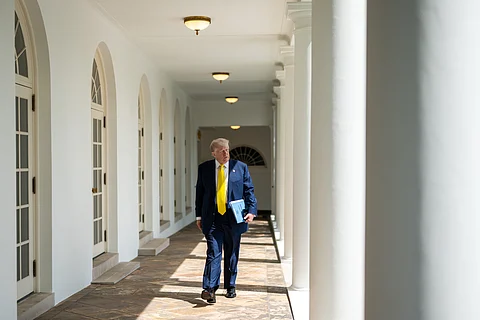

Switzerland is grappling with a significant economic challenge following the U.S. announcement of a 39-percent tariff on Swiss goods, a move that has sent shockwaves through the nation’s export-driven industries.
The tariffs, set to take effect on August 7, 2025, come as part of U.S. President Donald Trump’s broader trade policy to address perceived imbalances in global trade.
Switzerland, known for its watches, pharmaceuticals, and precision manufacturing, now faces a tariff rate more than double the 15 percent applied to most European Union imports.
The Swiss government has expressed disappointment and is actively seeking negotiations to mitigate the impact, while industries brace for potential job losses and market disruptions.
The 39-percent tariff threatens key Swiss sectors, particularly watchmaking and mechanical engineering, which rely heavily on the U.S. as a top export market.
Swissmem, representing the mechanical and electrical engineering industries, described the tariffs as a “massive shock” that could jeopardize tens of thousands of jobs.
The U.S. accounts for 16.8 percent of Swiss watch exports, valued at approximately 4.4 billion francs annually.
The higher duties could erode the competitiveness of Swiss products, especially as competitors in the EU, Britain, and Japan face lower tariffs.
While pharmaceuticals, a major export worth $35 billion last year, are currently exempt, a separate U.S. investigation into the sector could lead to additional levies, adding uncertainty to Switzerland’s economic outlook.
Switzerland’s government is prioritizing dialogue with U.S. authorities to secure a negotiated solution before the tariffs take effect.
Despite offering near-total market access for U.S. imports, Switzerland struggles to meet U.S. demands for further concessions.
The Trump administration justified the tariffs by citing Switzerland’s refusal to address trade barriers, calling the relationship “one-sided.”
Meanwhile, global markets have reacted with volatility, with Europe’s STOXX 600 index dropping 1.8 percent and Wall Street opening lower on August 1, 2025.
Analysts suggest that while markets have partially priced in tariffs, the broader economic strain remains a concern, particularly for export-reliant nations like Switzerland.
With the tariff deadline extended to August 7, Switzerland has a brief window to negotiate a reduction or exemption.
The government remains hopeful, citing progress in prior bilateral talks and Switzerland’s role as the seventh-largest investor in the U.S.
However, the lack of clarity on potential agreements adds to the uncertainty.
UBS Global Wealth Management predicts Switzerland may avoid a recession but expects weak economic growth in the near term.
As Switzerland navigates this trade dispute, the outcome of these negotiations will be critical for its industries and global trade relations, with broader implications for the stability of international markets.